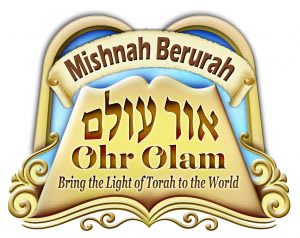Scheduling Elective Surgery Before Shabbos

Question: Is one allowed to schedule non-emergency surgery for the latter part of the week, if it would necessitate chillul Shabbos during the post-operative period?
Discussion: While this issue is not raised explicitly in Shulchan Aruch, some contemporary poskim base their ruling on this question on the principle established in this siman concerning embarking on a sea voyage before Shabbos: In the olden times, it was permitted to embark on a sea voyage in the beginning of the week, even though it was likely that by the time Shabbos arrived one would find himself in a dangerous (pikuach nefesh) situation and be forced to desecrate the Shabbos in order to save his life.[1] From Wednesday[2] onward, however, it was forbidden to set sail. This is because the three days before Shabbos are associated with the coming Shabbos; during those days one must avoid any situation that could cause him to desecrate the coming Shabbos. Setting sail within these days is, therefore, like setting oneself up for Shabbos desecration. If, however, one was traveling for the purpose of performing a mitzvah, such as visiting Eretz Yisrael, it was permitted to begin traveling even at the end of the week, even if a pikuach nefesh situation would be likely to arise and chillul Shabbos would result from it.
Based on this halachah, some poskim infer that from Wednesday onward, one should not engage in any activity that will result in a situation of pikuach nefesh and will require chillul Shabbos to save one’s life. Whenever possible, therefore, a non-emergency procedure that could possibly result in chillul Shabbos during the recuperation or post-operative period should not be scheduled from Wednesday until Friday of any given week. Still, if the doctor most skilled at the procedure is available only at the end of the week, or if the patient is in pain and does not wish to delay the procedure, it is permitted to schedule the procedure even at the end of the week.[3]
In the event that one underwent a procedure at the end of the week and now finds himself in a state of pikuach nefesh, he is treated like any other person whose life is in danger and may do whatever is necessary to save his life.[4]
Even if the procedure in question will not necessarily cause chillul Shabbos during the recuperation period, it is still recommended to schedule all elective surgeries and procedures for the beginning of the week whenever possible. This is based on the view of the Rif and Rambam, quoted by Shulchan Aruch, that one may not deliberately place himself in circumstances where he will be in pain on Shabbos and thereby diminish his oneg Shabbos. So if, for example, one has the option of scheduling non-emergency oral surgery for the beginning of the week, it is recommended that he do so.[5]
An issue related to the above discussion is whether or not a doctor who does not live within walking distance of the hospital where he works is obligated to stay in the hospital over Shabbos, or whether he may go home and wait to be called in case he is needed for an emergency, thereby leaving himself open to possible chillul Shabbos. Debatable as well is the question of whether a medical student is required to enroll in a Shomer Shabbos residency program or not. There are many details and issues, far beyond the scope of this discussion, that need to be explored before one can rule on these questions, and each doctor or medical student must discuss his individual case with an halachic authority.
[1] According to Shulchan Aruch, this is permitted even when a pikuach nefesh situation will certainly occur. Mishnah Berurah and Aruch ha-Shulchan rule, however, that even in the beginning of the week it is only permitted to travel when it is likely that a pikuach nefesh situation will arise, but not when it is certain that this would be the case.
[2] Tuesday night is considered like Wednesday. Note that some poskim rule that this prohibition begins on Thursday (Wednesday night).
[3] Emes L’yaakov, O.C. 331:1; Yalkut Yosef 248:10; Shemiras Shabbos k’Hilchasah 32:33; Orchos Shabbos 20:69.
[4] Igros Moshe, O.C. 1:127; Shulchan Shelomo 248:4.
[5] Orchos Shabbos 20:70.
